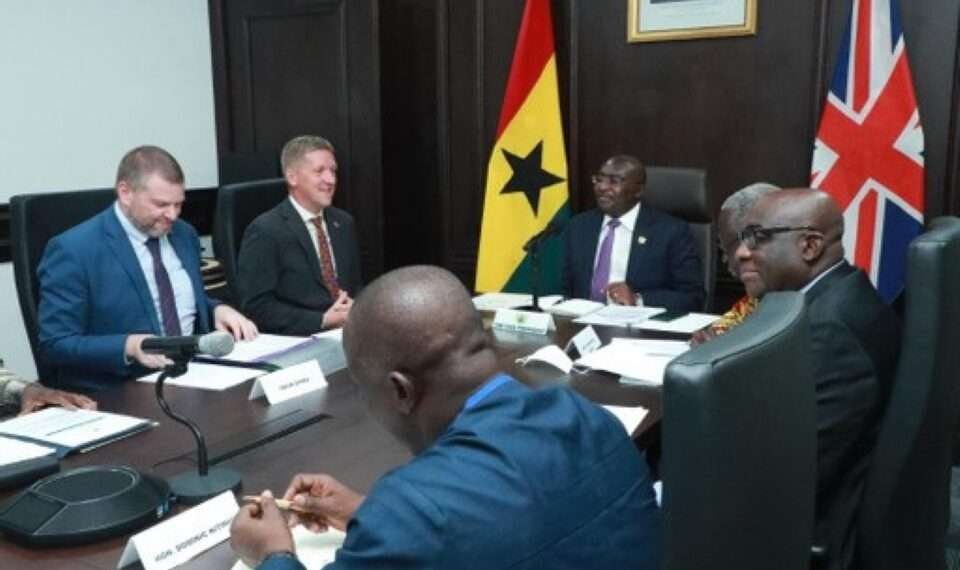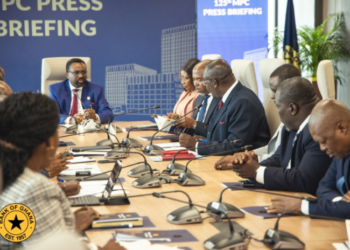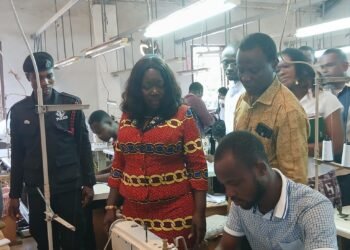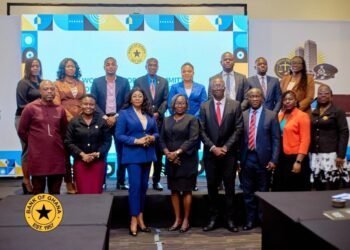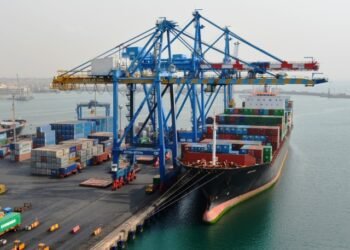Ghana and the United Kingdom have partnered to launch the Standards Partnership Pilot project aimed at boosting trade between the two countries.
The Standards Partnership Pilot project would focus on strengthening national quality infrastructure, organisations, and systems in complying with international recommended practices. In addition, it will also help deliver secondary benefits by helping businesses build resilient, diversify supply chains with high-quality products and services.
Mr Yaw Okyere Baafi, the Deputy Minister of Trade and Industry, launching the project in Accra, noted that the British Standards Institution and the Ghana Standards Authority (BSI-GSA) partnership would enable the standards body to develop the technical capacity to contribute to the government’s industrialisation efforts, as well as provide the local industries with the tools to produce goods to meet international standards.
This, Mr Yaw Okyere Baafi noted, would open them up to a larger market audience for their products and services.
“The national quality infrastructure is critical in promoting and sustaining economic development and environmental and social well-being. It relies heavily on the GSA’s core functions, which were Metrology, Standardisation, and Conformity Assessment.”
Mr Yaw Okyere Baafi
The deputy minister disclosed that cabinet earlier this year, approved a National Quality Policy to guide institutions like the GSA, Food and Drugs Authority (FDA), Ghana Export Promotion Authority (GEPA), the Council for Scientific and Industrial Research (CSIR), and many others, to ensure that goods and services emanating from or traded in Ghana are designed, manufactured and supplied in a manner that match the needs, expectations, and requirements of the increasingly competitive local and export markets.
Mr Yaw Okyere Baafi showed that the policy would also raise the quality consciousness among suppliers and consumers, as well as maintain a quality culture in public life throughout the country. He added that the partnership would not only enhance the capacity of the institutions involved, but would also strengthen the long-standing relationship between the United Kingdom and Ghana. “This partnership also ties in with the government’s flagship programme, 1 District 1 Factory, where products and services from these factories need to meet the right standards,” he said.
Ghana and Africa Need to Add Value to their Natural and Mineral Resources
Prof. Alex Dodoo, the Chief Executive Officer of the GSA, on his part, stated that to create jobs, Ghana and Africa need to add value to their natural and mineral resources using the human resources available to them. This, he said, must be backed with world-class technology. “When that is done, we will produce good quality goods and services that are already in demand globally and that meet international standards,” he emphasized.
Prof. Dodoo explained standards represent an extremely powerful and unavoidable means to transform lives and livelihoods in the country and the continent. “To put it simply, No Standards No Trade. And No Trade No Economy. And No Economy, No Jobs,” he stated.
The British High Commissioner to Ghana, Ms Harriet Thompson, noted that the collaboration is key and noted that Ghana remained a key trading partner for the UK, and improving standards would help further boost trade between the two countries.
READ ALSO: NSC Calls on Stakeholders to Advance Ghana’s Seed Sector

